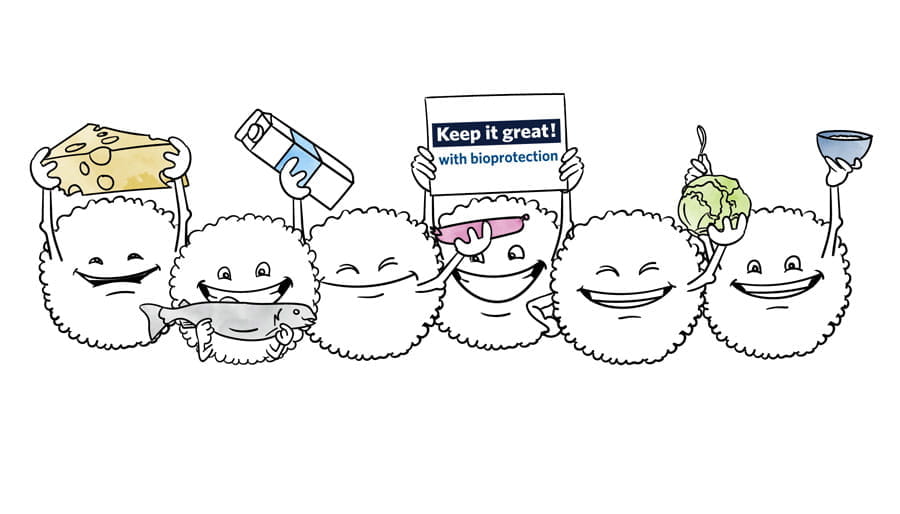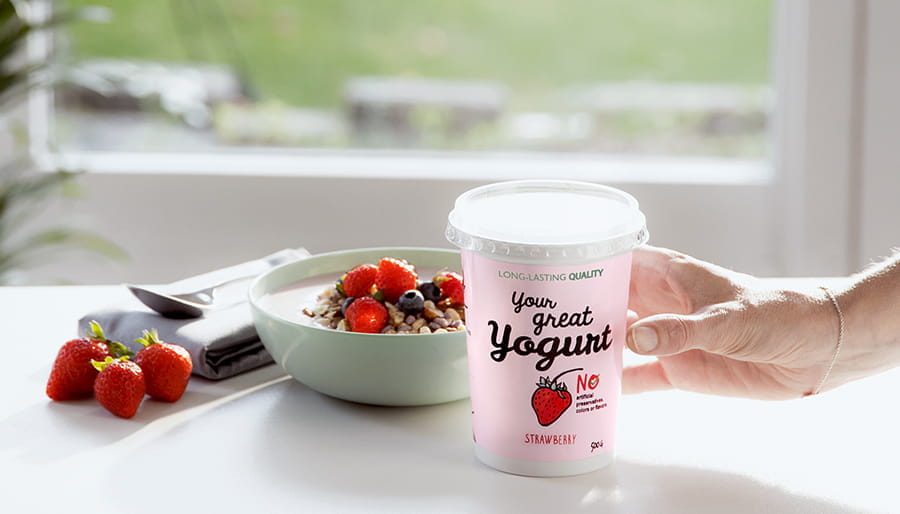The use of food cultures with bioprotective effects is becoming more widespread, and for good reason. Fermentation-enabled bioprotection – such as Chr. Hansen’s FRESHQ® – helps fight spoilage to extend shelf life, reduce waste and enable consumers to get the most out of the foods they buy. While these lactic acid bacteria have long been known to delay the spoilage of food, their exact mode of action was less well-understood.
Chr. Hansen’s team of scientists were the first to reveal the mechanism responsible for delaying the growth of yeast and mold in fermented dairy products. Their research discovered that these lactic acid bacteria strains out-compete contaminants for manganese, a specific nutrient, effectively working to starve them. This mode of action helps to keep food fresh and delays the spoilage of foods that might otherwise go bad due to yeast or mold. Our team of scientists worked internally to identify the "transporter" within FRESHQ® food cultures that takes up manganese. Then, in cooperation with North Carolina State University in the United States, the mechanism was proved at genetic level.
We are proud to share these findings, which are significant and featured in an article in the prestigious Applied and Environmental Microbiology Journal.






